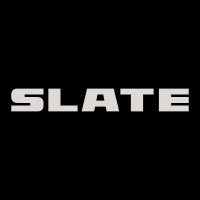
Flash Over-the-Air (FOTA) Validation Engineer
About Slate
At Slate, we’re building safe, reliable vehicles that people can afford, personalize and love—and doing it here in the USA as part of our commitment to reindustrialization. The spirit of DIY and customization runs throughout every element of a Slate, because people should have control over how their trucks look, feel, and represent them.
Who we are looking for:
Slate is looking for an energetic, organized, experienced Flash Over-the-Air (FOTA) Validation Engineer to join our growing team.
The Flash Over-the-Air (FOTA) Validation Engineer will be responsible for designing, executing, and analyzing software validation processes for over-the-air flashing capabilities within the embedded controllers of our vehicle platforms. This role demands a highly technical and analytical approach, with the engineer collaborating extensively across Software, Electrical, Propulsion, and Mobile App teams to ensure seamless integration and compliance of the flashing subsystem with program requirements.
What you get to do:
- Develop and execute advanced software validation strategies, including test case design and implementation, for enabling over-the-air flash capabilities across embedded modules.
- Collaborate closely with cross-functional teams (Software, Electrical, Propulsion, and Mobile App) to validate flashing processes across multiple control units on test properties, including bench setups and test vehicles.
- Author and maintain detailed test specifications, scripts, and documentation based on system and component-level requirements.
- Plan and manage validation milestones by creating comprehensive testing plans to meet OTA program targets.
- Build and validate FOTA packages, ensuring proper binary image conversion and compliance with established processes.
- Perform in-depth analysis of large datasets from multiple sources to validate use cases, compliance, and performance criteria.
- Troubleshoot, root-cause, and resolve complex issues related to the flashing process, leveraging diagnostic tools and structured problem-solving methodologies.
- Ensure traceability of UDS DIDs and adherence to flash applicability criteria throughout the validation process.
- Automate validation workflows and identify opportunities to enhance efficiency through scripting and tool development.
- Communicate technical findings, risks, and trade-offs to stakeholders effectively.
What you bring to the team:
- Bachelor’s degree in electrical, Computer, Software, or Mechanical Engineering from an ABET-accredited or equivalent program is preferred.
- Minimum 8 years of experience in system modelling, test automation, and validation across embedded systems, with at least:
- 4 years of experience in low- and high-voltage system validation.
- 4 years of hands-on experience in flash validation using bench setups and test vehicles.
- Proficiency in UDS reprogramming processes (ISO-14229) and network transport protocol layer (ISO-15765).
- Expertise in CAN tools such as CANalyzer, P-CAN, Kvaser, CANoe, CANApe, and Vflash.
- Skilled in troubleshooting flash failures using CAN trace analysis and aligning issues to requirements.
- Experience authoring and modifying simulation scripts (e.g., CAPL) and working with networking tools like Sniffer, Wireshark, and iperf.
- Strong knowledge of scripting languages such as Python for test automation and process improvement.
- Familiarity with requirements management tools like Polarion or DOORS.
- Proven experience in developing and validating systems that involve vehicle-mobile device interfacing and customer-facing mobile applications.
- Competency in using structured problem-solving tools (8D, five whys) for diagnosing and resolving complex engineering challenges.
- Familiarity with industry standards such as FMVSS, NHTSA, and SAE.
Preferred Skills:
- Experience in electric vehicle system simulation, validation, and requirements development.
- Strong analytical and problem-solving skills with the ability to visualize and interpret large datasets effectively.
- Excellent communication and collaboration skills, with a track record of building strong relationships across multidisciplinary teams.
Why Join Team Slate?
We’re fueled by grit, determination, and attention to detail. Slate’s start-up spirit of ingenuity and resourcefulness moves our business forward. Team Slate fosters a culture of excellence, innovation, and mutual respect, and is motivated by shared principles.
- Safety First
- Delight Customers
- One Team
- Relentless Improvement
- Fast, Frugal and Scrappy
- Respectful Collaboration
- Positive Legacy
We want to work with people that reflect the communities in which we operate:
Slate is proud to be an Equal Employment Opportunity and Affirmative Action employer. We do not discriminate based upon race, color, religion, gender, gender identity or expression, sexual orientation, national origin, genetics, disability, age, veteran status, marital status, parental status, cultural background, organizational level, work styles, tenure and life experiences. Or for any other reason.
Slate is committed to providing reasonable accommodation for qualified individuals with disabilities in our job application procedures. If you need assistance or an accommodation due to a disability, you may contact us at recar-talent_acquisition@slate.auto or 813-468-7257.
Apply for this job
*
indicates a required field